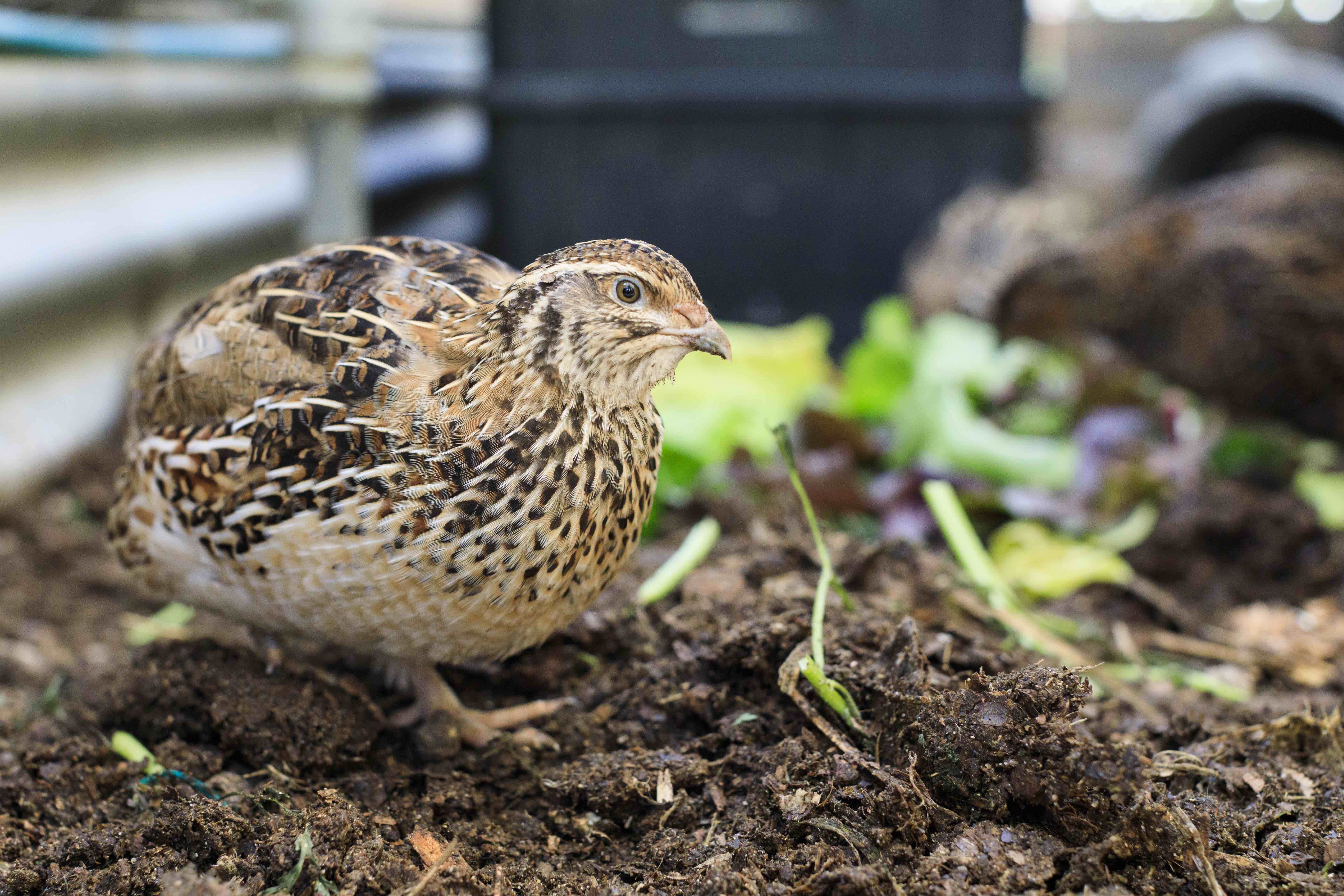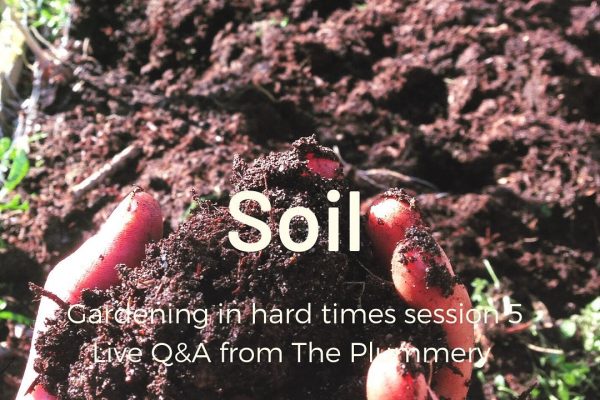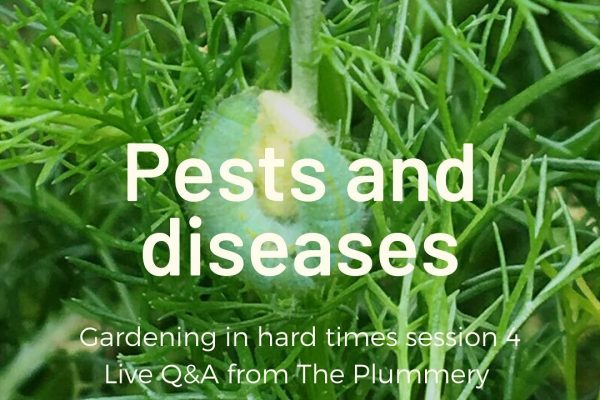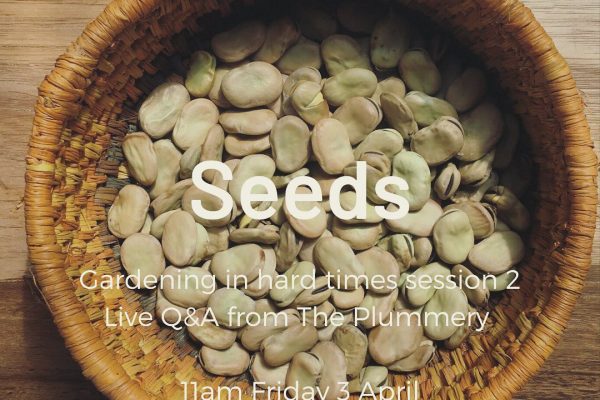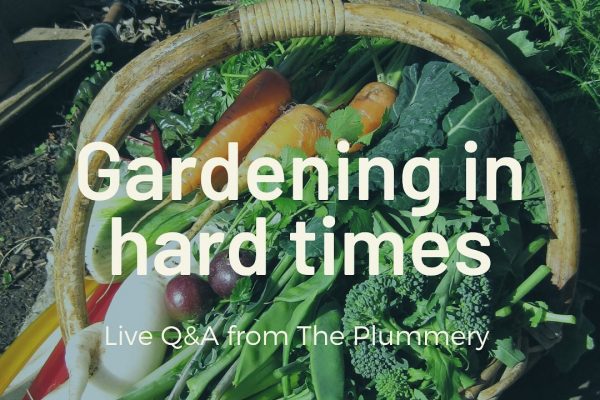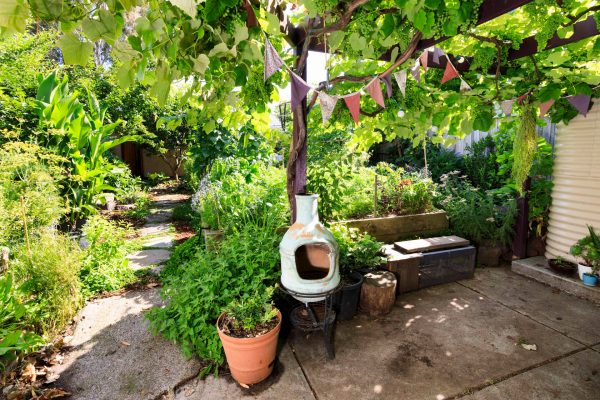Japanese quails (Coturnix japonica) are an alternative in urban areas, where space and noise constraints may rule out backyard chickens. Quails will provide you with fresh, golden-yoked eggs from even a tiny space. You’ll also get pest control, fertiliser and compost making services, not to mention hours of Quail TV!
Feed and housing
Housing could be a walk-in aviary or a low cage, but must be completely dog, cat and fox proof. Quails prefer to simply sit on the ground at night rather than roost, and – at least in Melbourne’s climate – they need little special care other than summer shade and protection from wind and rain. They will lay their eggs anywhere in the run so it’s an Easter egg hunt every day!
Most ethical quail keepers cite a maximum stocking rate of 5 birds per square metre, though I give mine more than twice that. I use a deep litter system to keep their environment stimulating: a fifteen centimetre layer of carbon-rich materials (eg. wood chips) on the base of the run. The carbon balances the nitrogen in manure, preventing smells and eventually breaking down into a rich compost. Insects are attracted to deep litter, adding hours of entertainment (for you and the quail!) plus valuable live food to their diet. You never need to clean it out except to harvest the compost for your garden, though you will need to turn it occasionally with a garden fork.
Quail housing should also include:
- Unlimited clean, cool water – I use nipple waterers ($1 each on eBay) screwed into the base of a food grade plastic bucket
- Basic feed (eg. chook layer pellet) – I use a homemade trigger feeder that the quails peck to release pellets, which reduces waste and prevents rodent access
- Other foods – like scraps from the kitchen, compost worms from a worm farm, insects from the deep litter and garden, plus a big bunch of garden greens and weeds every day
- A dustbath – Quails love to bathe, and this behavior naturally inhibits lice and mites
- Grit – Birds have no teeth so they need to swallow small stones and shells to grind up food in their gizzard. You can provide finely crushed eggshells, small stones or purchased shell grit.
Free ranging is problematic: although quails are ground-dwelling they will fly straight upwards with force if alarmed and could easily clear a typical fence, so free ranging is problematic. Movable ‘quail tractors’ or ranging in secure caged areas are great options.
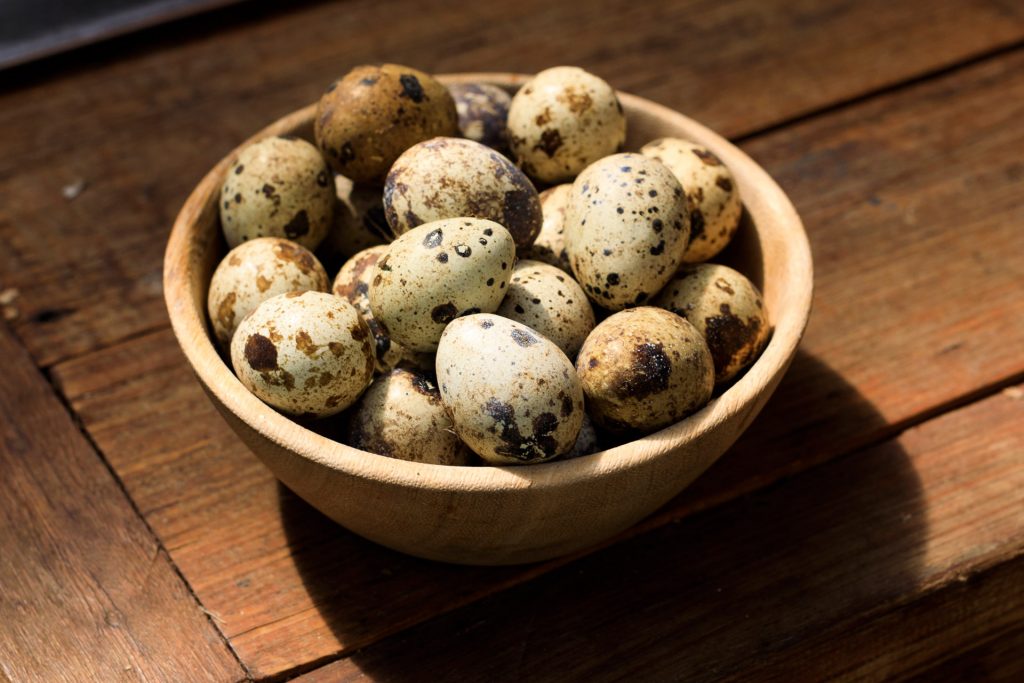
In the kitchen
Four to five quail eggs equal one chicken egg. Quail egg scissors are an essential tool for opening little eggs quickly! The taste is indistinguishable from chicken eggs but slightly richer because of the larger yolk.
Getting your quail
Point-of-lay quail hens cost about $7 on Gumtree or the Trading Post. Quails start laying fast – at six to ten weeks – but rarely live past three years, so you’ll need a succession plan. Japanese quail almost never go broody so eggs are hatched in an incubator, though some have had success with a broody bantam chook foster mum.
Photos by Amy Piesse Photography (1), Kat Lavers (2). This article was originally published in Pip Australian Permaculture magazine, Issue 7
Listen to Pip Podcast #2: keeping quail with Kat Lavers

